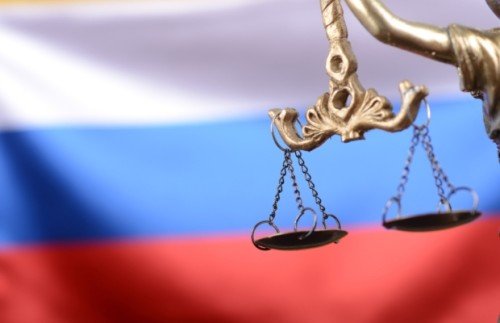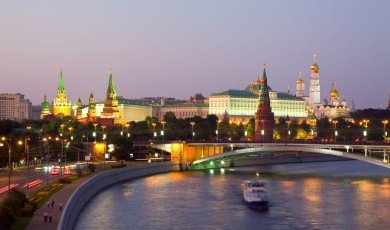
The legal system in Russia has undergone significant changes in recent years. The country has introduced several reforms aimed at improving the efficiency and transparency of its legal agencies. However, the legal system in Russia remains complex and difficult to navigate for both individuals and businesses.
In this blog post, we will provide an overview of how legal agencies work in Russia. We will discuss the different types of legal agencies, their roles and responsibilities, and the challenges they face. We will also explore some of the recent reforms that have been introduced to improve the legal system in Russia.
Types of Legal Agencies in Russia
There are several types of legal agencies in Russia, including courts, law enforcement agencies, and legal aid organizations.
Courts: The court system in Russia is hierarchical, with the Constitutional Court at the top and local courts at the bottom. There are four levels of courts in Russia: the Constitutional Court, the Supreme Court, regional courts, and district courts. Each court has its own jurisdiction and handles different types of cases.
Law Enforcement Agencies: There are several law enforcement agencies in Russia, including the Federal Security Service (FSB), the Ministry of Internal Affairs, and the Investigative Committee. These agencies are responsible for investigating and prosecuting crimes.
Legal Aid Organizations: Legal aid organizations provide legal assistance to individuals who cannot afford to hire a lawyer. These organizations are typically non-profit and funded by the government or charitable organizations.
The legal system in Russia consists of various types of legal agencies, each with its own roles, responsibilities, and jurisdiction. Understanding the different types of legal agencies in Russia can help individuals and businesses navigate the legal system more effectively. In this blog post, we will discuss the different types of legal agencies in Russia and their functions.
Courts
The court system in Russia is hierarchical, with the Constitutional Court at the top and local courts at the bottom. There are four levels of courts in Russia: the Constitutional Court, the Supreme Court, regional courts, and district courts. Each court has its own jurisdiction and handles different types of cases.
The Constitutional Court is the highest court in Russia and is responsible for interpreting the Constitution and ensuring that laws and other legal acts comply with it. The Supreme Court is the highest court of appeal for civil, criminal, and commercial cases. Regional courts hear cases on appeal from district courts, and district courts hear cases on the first instance.
The role of the courts in Russia is to resolve disputes between individuals and businesses, interpret and apply the law, and make judgments and rulings. The courts also have the power to impose penalties and punishments on those found guilty of crimes or civil offenses.
Law Enforcement Agencies
There are several law enforcement agencies in Russia, including the Federal Security Service (FSB), the Ministry of Internal Affairs, and the Investigative Committee. These agencies are responsible for investigating and prosecuting crimes.
The FSB is responsible for counterintelligence and internal security, while the Ministry of Internal Affairs is responsible for maintaining public order and fighting crime. The Investigative Committee is responsible for investigating serious crimes, such as murder and organized crime.
The role of law enforcement agencies in Russia is to investigate crimes, arrest suspects, and prosecute cases in court. They also have the power to detain individuals suspected of committing crimes for a certain period before they are formally charged or released.
Legal Aid Organizations
Legal aid organizations provide legal assistance to individuals who cannot afford to hire a lawyer. These organizations are typically non-profit and funded by the government or charitable organizations.
The role of legal aid organizations in Russia is to provide legal assistance to individuals who cannot afford to hire a lawyer. They also provide education and training on legal issues to help individuals better understand their rights and the legal system.
Legal aid organizations in Russia have been crucial in ensuring access to justice for marginalized groups, such as low-income individuals, women, and minorities.
Notary Offices
Notary offices in Russia are responsible for verifying the authenticity of legal documents, such as contracts and wills. They also provide legal advice on matters such as property transactions and inheritance.
The role of notary offices in Russia is to ensure the authenticity of legal documents and to prevent fraud. Notaries are trained legal professionals who can help individuals and businesses navigate complex legal transactions.
In conclusion, the legal system in Russia consists of various types of legal agencies, including courts, law enforcement agencies, legal aid organizations, and notary offices. Each type of agency plays a critical role in ensuring access to justice and maintaining the rule of law in Russia. Understanding the functions and responsibilities of these agencies can help individuals and businesses navigate the legal system more effectively.
Roles and Responsibilities of Legal Agencies in Russia
The roles and responsibilities of legal agencies in Russia vary depending on the type of agency. Here are some of the key responsibilities of each type of agency:
Courts: Courts in Russia are responsible for resolving disputes between individuals and businesses. They also interpret and apply the law, and make judgments and rulings.
Law Enforcement Agencies: Law enforcement agencies in Russia are responsible for investigating crimes, arresting suspects, and prosecuting cases in court.
Legal Aid Organizations: Legal aid organizations in Russia provide legal assistance to individuals who cannot afford to hire a lawyer. They also provide education and training on legal issues.
Challenges Facing Legal Agencies in Russia
Despite the reforms that have been introduced in recent years, the legal system in Russia still faces several challenges. Here are some of the key challenges:
Corruption: Corruption is a major problem in the legal system in Russia. Bribery and other forms of corruption are common, particularly in lower-level courts.
Lack of Independence: The judiciary in Russia is not independent. Judges are often influenced by the government or other powerful entities, which can affect their decisions.
Backlogs: The court system in Russia is notoriously slow, with cases often taking years to be resolved. This can lead to a backlog of cases, which can make it difficult for individuals and businesses to get justice in a timely manner.
Reforms to Improve the Legal System in Russia
In recent years, the Russian government has introduced several reforms aimed at improving the efficiency and transparency of the legal system. Here are some of the key reforms:
Digitalization: The Russian government has invested heavily in digitalizing the court system. This has made it easier for individuals and businesses to access court records and submit documents online.
Judicial Reform: The government has introduced reforms aimed at improving the independence of the judiciary. These reforms have included changes to the way judges are appointed and the introduction of new ethical standards.
Legal Aid: The government has increased funding for legal aid organizations, making it easier for individuals who cannot afford to hire a lawyer to access legal assistance.
The legal system in Russia faces a range of challenges, from corruption to bureaucratic inefficiencies. These challenges impact the effectiveness of legal agencies and the ability of individuals and businesses to access justice. In this blog post, we will discuss some of the main challenges facing legal agencies in Russia.
Corruption
Corruption is a pervasive issue in Russia's legal system, with reports of bribery, favoritism, and other forms of corruption occurring at all levels of the system. This corruption undermines the rule of law and erodes public trust in the legal system.
Corruption in the legal system can make it difficult for individuals and businesses to access justice, as those with more money and influence are often able to manipulate the system to their advantage. It also makes it harder for legal agencies to do their jobs effectively, as they may face pressure to make decisions based on factors other than the law.
Bureaucratic Inefficiencies
The legal system in Russia is notoriously bureaucratic, with complex procedures and lengthy wait times for legal processes. This can make it difficult for individuals and businesses to navigate the legal system and access justice in a timely manner.
Bureaucratic inefficiencies can also impact the effectiveness of legal agencies. For example, if a court case takes years to resolve, the impact of any judgments or rulings may be significantly diminished.
Lack of Resources
Many legal agencies in Russia are underfunded and understaffed, which can impact their ability to do their jobs effectively. For example, courts may not have enough judges or support staff, which can lead to delays in resolving cases.
The lack of resources also impacts legal aid organizations, which may not have the funding to provide adequate legal assistance to those who need it. This can make it even harder for individuals who cannot afford a lawyer to access justice.
Political Interference
The legal system in Russia is closely tied to the political system, and political interference in legal proceedings is not uncommon. This can undermine the independence of legal agencies and compromise the integrity of legal decisions.
Political interference can also impact the ability of legal agencies to investigate and prosecute crimes, particularly when those crimes involve politically connected individuals or organizations.
Limited Judicial Independence
While the Constitution of the Russian Federation guarantees judicial independence, the reality is often different. Judges may face pressure from higher-ranking officials or face repercussions for decisions that are not politically expedient.
Limited judicial independence can impact the ability of legal agencies to make fair and impartial decisions, and can lead to public distrust in the legal system.
In conclusion, the legal system in Russia faces a range of challenges that impact the effectiveness of legal agencies and the ability of individuals and businesses to access justice. These challenges include corruption, bureaucratic inefficiencies, lack of resources, political interference, and limited judicial independence. Addressing these challenges will be crucial for ensuring a fair and effective legal system in Russia.
Conclusion
The legal system in Russia is complex and difficult to navigate. There are several types of legal agencies, each with its own roles and responsibilities. Despite the reforms that have been introduced in recent years, the legal system in Russia still faces several challenges, including corruption and a lack of independence.








